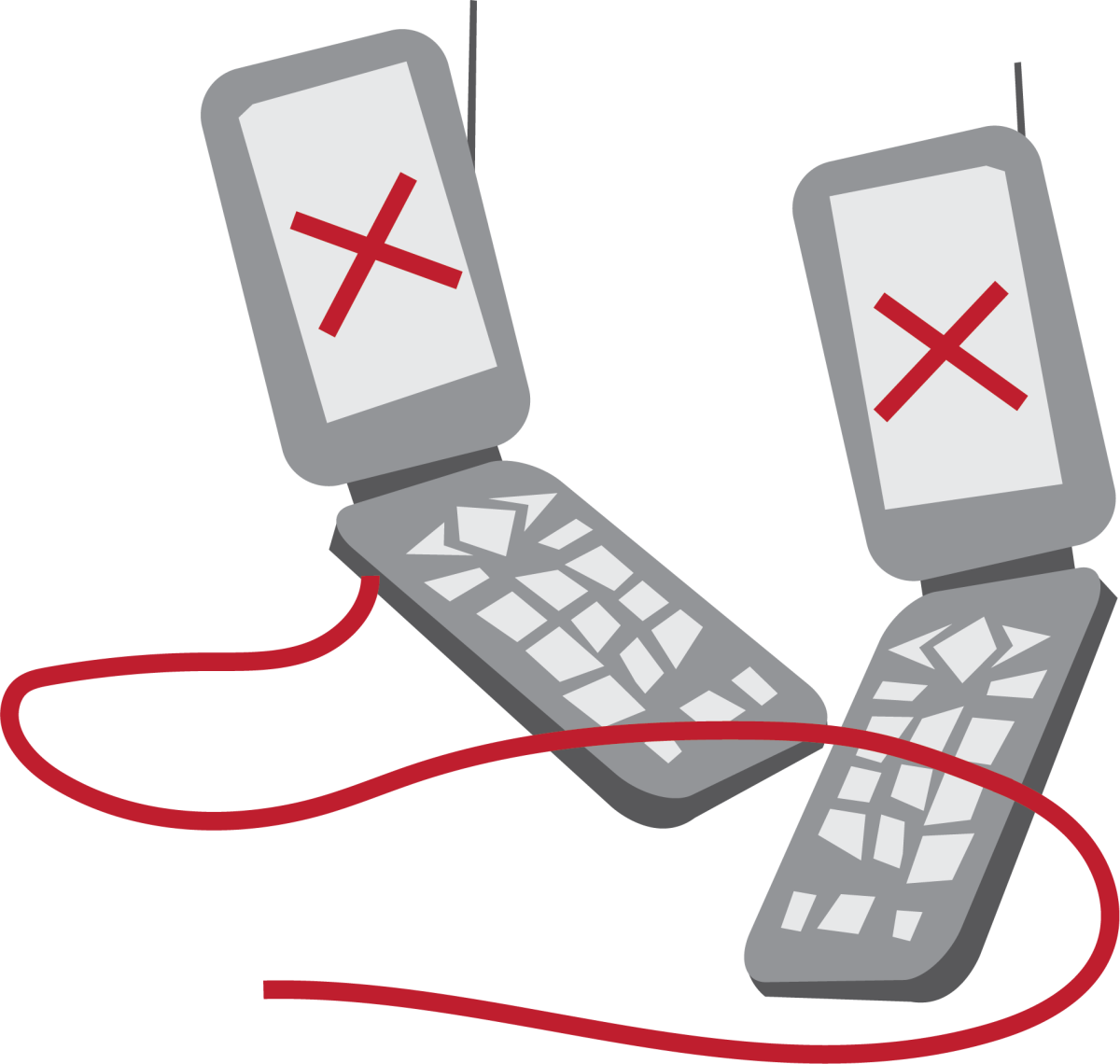As the public grows aware of the impact technology can wreak on the mental health and well-being of kids and teens, people generate their own conclusions.
On Jan. 11, Gov. Spencer Cox sent a letter to school districts calling for no-phone policies in schools. He also signed a bill in 2023 regulating social media use among minors. These policies limit Utahns’ privacy and autonomy. They could harm minors while trying to protect them.
Teachers, lawmakers and parents need more awareness of how technology impacts youth. But they must not ban it, especially at a legislative level. Instead, adults should focus on teaching media literacy.
Technology’s Role Today
Even experts don’t agree on how technology affects children. University of Utah media ethics professor Leandra Hernandez said the topic is “more complex than we can even understand.”
“On the one hand, social media use helps bring us together,” she said. “Especially for marginalized communities that may not have the ability to find other individuals of similar identities or backgrounds as easily.” For example, Hernandez organizes a local queer climbing group that communicates primarily through Instagram.
However, Hernandez also cited some “perils of social media,” including depression, cyberbullying and social comparison. And certain adults have seen firsthand the obsession youth can have with technology, from iPad kids to social media-addicted teens.
These issues are concerning. But imposing heavy restrictions pushes Utahns in the wrong direction.
Bans Aren’t the Answer
Utah’s laws require social media companies to verify users are at least 18 years of age. Children can’t create social media accounts unless their parents consent. This encourages parents to surveil their children’s account activity.
Hernandez said social media restrictions raise questions about agency, consent and privacy rights. By limiting anonymity and giving parents access to their children’s social media, the Utah law begins to hinder these rights.
Such restrictions prompt kids to use technology in private. This discourages them from speaking up when they encounter safety issues, concerns or questions. It also limits trust between parents and kids.
“We have parents who are social media users,” Hernandez said. “This moment in time gives us an opportunity to more critically think through helping parents and adolescents take the internet into their own hands.”
If Utahns have learned anything from book bans, it’s not right to ban things that they’re afraid of. Banning social media can backfire and isolate kids who need the connection with peers offered by social media.
Cox and Utah Republicans are among those who work towards legislative restrictions on kids’ technology access. Utahns should watch for related bills during legislative sessions. The legislature should not regulate access to the digital world.
“It takes away the power of the parents and the family unit to make decisions that work best for them,” Hernandez said.
It’s good Cox is concerned about children’s health and safety. However, legislative solutions should focus instead on media literacy instead of limiting access to social media.
Media Literacy and Other Solutions
Media literacy provides tools for youth to reflect on what they come across in media and share that information with others, Hernandez explained. This kind of education is vital. It gives kids and teens agency and can empower them as well as keep them safe.
“Adolescents are smart, capable, agentic beings and I would like to think that they would be able to have these conversations thoughtfully, too,” she said.
In schools, policies should determine when technology use is appropriate, but not ban it altogether. Cellphone use enhances some learning circumstances. Students can use phones for English translation or to listen to music while working. During break times, students should have the opportunity to connect with family, friends or a therapist online. Policies may differ between schools or districts. They should involve collaboration between students and teachers. At Centennial Junior High School in Kaysville, Utah, students created their own cellphone policy involving incentives and rewards. Students and teachers say it’s had positive effects.
For collaboration to extend into the private realm, parents should mentor rather than monitor. They must set an example of good online habits. If they must surveil, they must be honest about it.
While there is no universal solution to the problems technology can cause for kids, Utah must foster honest environments that ensure media literacy. It cannot ban things and leave people to fend for themselves.





Kai A • Feb 29, 2024 at 10:14 am
I love your take on this and how important media literacy is in this debate. I feel that this proposed ban would alienate teenagers from their parents and teachers. The internet is something we need to grow up with, but we also need to be taught how to have a healthy balance between online and offline. I don’t think much of the older generation understands how important internet and technological literacy is for our future generations. Banning access to social media instead of teaching healthy consumption of media can be detrimental to how the future generation interacts in their adult life. This may seem wrong to generations who did not grow up with social media.
John Hedberg • Feb 28, 2024 at 9:34 am
Caroline, I like the questions you’re asking~!
Some other questions to include might be:
1. Why is alcohol banned for people under 21? What kind of experiences led to this current rule?
2. If minors are relying on their phones/devices as their primary method to engage with all kinds of people, isn’t this itself a problem when it comes to social habits and maturing the kind of life skills which the grown working world requires?
3. Not everyone means us well. There are actors and entities, foreign and domestic, which prey on naivete by giving people deliberately inaccurate descriptions, definitions, history (big problem), reporting, and opportunities in order to manipulate and even destroy lives & cultures they see as inconvenient. People who didn’t grow up around books are having a hard time giving credence to cross-checked and time-tested resources, instead coming to the inverted conclusion that online sources are more accurate. Very old propaganda, narratives, and “oppression” ideology are being dressed up as new, insightful, & enlightened, and not knowing any better, people who didn’t grow up around books label these old poisons as “compassionate” policies and methodologies, even though they actually killed tens of millions of people in practice and caused unimaginable suffering to billions. Like taking opioids to cure suffering that may actually be beneficial for growth & learning, this old “enlightened compassion” is liable to end up harming and killing people (if followed), which is kind of a problem, a problem deliberately arranged by those who don’t mean everyone well and who desire disaster, since it serves their agendas. In fact, they often fabricate the problems they offer to save us from, and the prize is power: Kim Jong Un is literally worshipped as a 3rd-generation Savior from the very problems his faction created in North Korea! This is a question whose importance is survival-level, since Dark Ages happen, and they eat whole civilizations. What do you think happens to compassion when they do? (Books give a pretty good description: bloody!)
4. Survivors of autocratic regimes like CCP China, North Korea, the former Soviet Empire, the former Third Reich, and many others report that media was used to instill a “1984”-level of indoctrination in the youth, so that they literally grew up not being able to think for themselves or distinguish between love and hate, true and false. Yeonmi Park of North Korea gave a pivotal long-form interview with Dr. Jordan Peterson that’s still available, talking about the erasure of words so that people couldn’t even think thoughts the regime didn’t approve of. Xi Van Fleet and Lily Tang Williams of CCP China have given vivid descriptions of how indoctrinated youth were used as “useful idiots” to destroy history, language, culture, and especially people (struggle sessions, murder, genocide of their own people, mass exile, deliberate mass starvation, forced labor (slavery) & concentration camps, and more recently, forced harvesting of organs and fetuses from healthy, unwilling human beings with low “social credit scores”). Yeonmi and Xi have written books about these experiences.
So, the question is, have you considered that unsourced anonymously-funded algorithms have 24-hour access to the people (minors) least able to understand that what they’re being fed is life-threatening to themselves and everyone they love? Concentration camps are notorious for playing the same messages over and over to prisoners until they believe what they’re being fed through sheer repetition, and phones now give anonymous actors the ability to place addicted users in a virtual concentration camp mentally all day and all night, even at school, using the same methods.
5. Given that this is being done now deliberately in other countries today, do you think this may account for a lot of the mental health issues, anxiety, depression, chronic outrage, emotional exhaustion, and feelings of isolation & despair that nearly everyone seems to be describing these days, which didn’t seem so prevalent prior to smart phones being introduced, especially among young people?
Anyway, Caroline, your questions are good ones! Keep asking new ones, and don’t be afraid to look at the data that disappoints you, since no one’s assumptions last more than a year or two at a time, and even scientists often end up changing their minds completely when emerging data paints them an entirely new picture of a reality they thought they already knew.
Plato wrote something called “The Cave Allegory” that I found really insightful. Look it up, if you want to. (I recommend the actual book, since someone else’s editing may leave out key points, which is why original sources are usually a lot more reliable than online ones~). “1984” and “Fahrenheit 451” are also useful and interesting (library). There’s also a great movie called “The Lives of Others” (2006), which explores how the Soviet secret police in East Germany used technology as a tool to control and manipulate individual lives, and this was before adults and children carried these “Stasi” tools around with us voluntarily in our pockets! 😂
Thanks for your patience. Kindly~